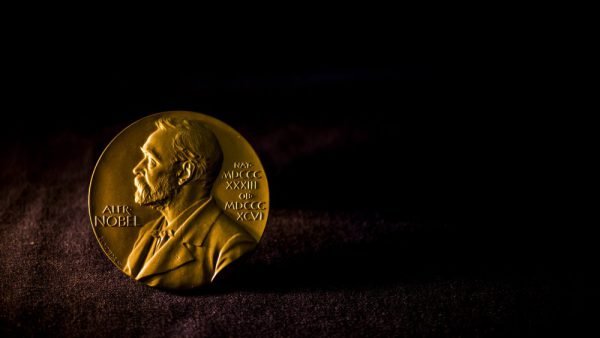The Nobel Prize, widely considered the most prestigious international award in the world, is awarded annually in recognition of academic, scientific, or cultural advances.
They are awarded in six categories – Physics, Chemistry, Literature, Medicine or Physiology, Economics, and Peace.
The awards are named after Alfred Nobel, a Swedish chemist, inventor, industrialist, and philanthropist. Nobel held over 350 patents, the most famous of which was dynamite. A man of many interests and passions, Nobel had a keen interest in literature and poetry and was a writer himself.
Who was Alfred Nobel?
Born on 21st October 1833 in Stockholm, Sweden to Immanuel Nobel and Andriette Ahlsell Nobel, Alfred Nobel was a famous scientist, inventor, and businessman.
The year that Alfred was born, his father, who was an engineer, unfortunately, suffered losses in his business. In 1837, he decided to move to Russia and Finland to advance his business interests while Alfred’s mother took care of the family in Stockholm.
Immanuel set up a mechanical workshop in Russia and, soon enough, the business flourished. He was able to move his family to St. Petersburg in 1842. Alfred and his three other brothers were given good education, which included lessons in sciences, literature, and languages, with the help of private tutors. By the age of 17, Alfred was able to communicate in 5 languages – Swedish, Russian, French, German, and English.
To become a chemical engineer, Alfred moved to Paris, where he worked in the private laboratory of the famous chemist, Professor T. J. Pelouze. It was in Paris that he met Italian chemist, Ascanio Sobrero, who was famous for inventing nitroglycerine, a highly explosive liquid. Alfred became very interested in the use of nitroglycerine for commercial purposes.
In 1866, after he had moved back to Sweden, Alfred invented dynamite, a material that was made by mixing nitroglycerine with fine sand. Dynamite was in heavy demand in the construction industry as it helped drastically reduce the costs associated with construction works such as building bridges and blasting rocks.
In the 1870s and 80s, Alfred set up factories across more than 20 countries and travelled often. Due to his entrepreneurial bent, he also became one of the wealthiest men of his time.
Nobel passed away in Italy on 10th December 1896. In his will, Nobel had left much of his wealth and fortune towards the establishment of a prize to be awarded to those that “have conferred the greatest benefit to humankind.”
However, his will did not please everyone. It was disputed by his relatives and questioned by authorities in various countries. It was four years after his death for all parties to be convinced by his will.
Following this, in 1901, the first Nobel Prize in Physics, Chemistry, Physiology or Medicine and Literature were first awarded in Stockholm, Sweden and the Peace Prize in Kristiania (now Oslo), Norway.
It was much later in 1968 that Sveriges Riksbank (Sweden’s central bank) established The Sveriges Riksbank Prize in Economic Sciences in Memory of Alfred Nobel.
Facts about the Nobel Prize
- The youngest Nobel laureate is Malala Yousufzai, who was awarded the Nobel Prize for Peace in 2014 at the age of 17. She was awarded the honour for her “struggle against the suppression of children and young people and for the right of all children to education.”
- The oldest Nobel laureate till date is Arthur Ashkin, who was awarded the Nobel Prize for Physics in 2018 at the age of 96. He was bestowed with the honour “for the optical tweezers and their application to biological systems.”
- The Nobel Prize has been declined by two recipients. First, Jean-Paul Sartre was awarded the Nobel Prize in Literature in 1964. However, he declined the honour because he generally declined all official honours. Second, Le Duc Tho was awarded the Nobel Prize in Peace along with the US Secretary of State Henry Kissinger for negotiating the Vietnam peace accord. However, citing the situation in Vietnam as a reason, he declined the prestigious prize.
- Marie Curie was the first woman to have won the Nobel Prize. She was awarded the Nobel Prize in Physics in 1903. She is also the first woman to have been awarded the Nobel Prize twice. In 1911, she was awarded the Nobel Prize in Chemistry for her discovery of radium and polonium.
- The International Committee of the Red Cross (ICRC) is the only three-time recipient of the Nobel Prize. It was awarded the Nobel Peace Prize in 1917, 1944, and 1963.
- The Nobel Prize is not awarded posthumously unless the recipient has passed away after the announcement of the award.
- Three Nobel laureates have been under arrest at the time of the award: German pacifist and journalist Carl von Ossietzky, Burmese politician and human rights activist Aung San Suu Kyi, and Chinese human rights activist Liu Xiaobo. All the three have been awarded the Nobel Prize for Peace.
The Nobel Prize for 2019 are being announced. Keep reading for more information on the recipients.
0